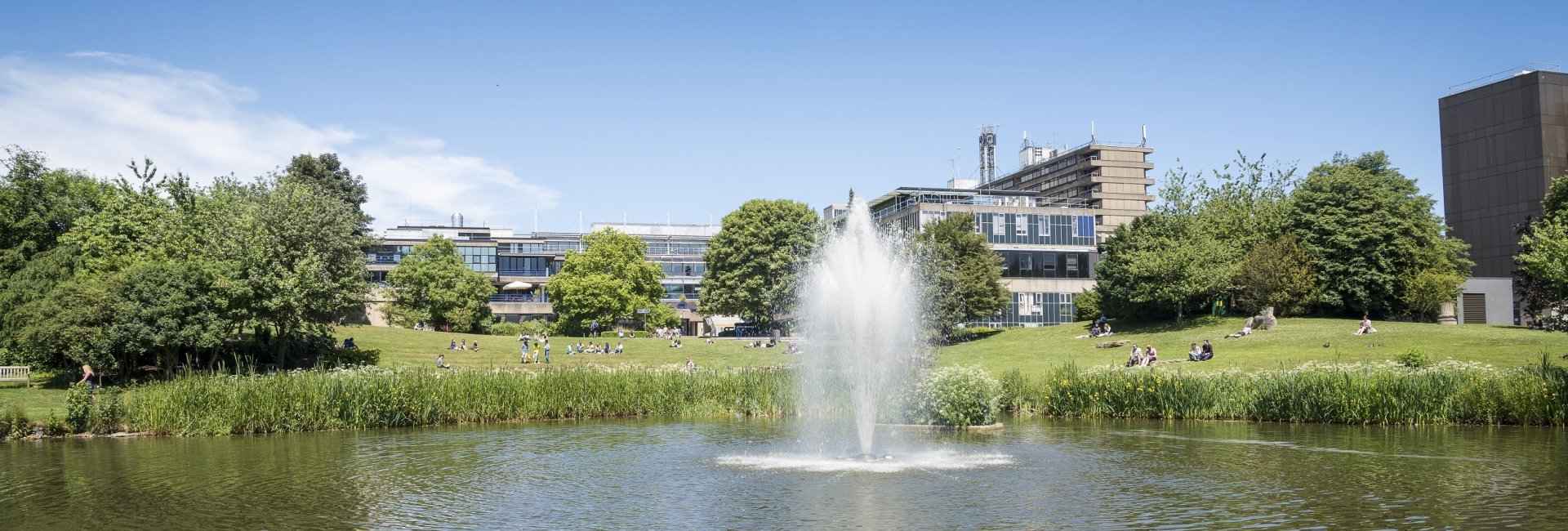University of Bath - Postgraduate Virtual Open Day
4 Jun 2025, 11:00
Bath, Bath and North East Somerset

Explore social justice and welfare issues to understand the key questions and challenges society faces around rights, equality and distribution of resources.
On this course, you’ll learn about the social and political foundations of policies that affect people’s lives. You’ll study the impact social policy has on identity, political organisations, social justice and human rights.
You'll explore the origins and evolution of state-run institutions, and their relationship with the economy and third sector in the UK and beyond. This will increase your understanding of contemporary social welfare issues at local, national and international levels.
Year 1 is your introduction to becoming a social scientist. You’ll explore social change and how social issues become constructed as policy problems. You’ll also learn about the major social, political and economic factors shaping equality and welfare in modern Britain.
In Year 2, you will focus on key policy areas such as the family, poverty, social inequality, and analysis of the policy process. You’ll learn how to evaluate data and information to develop your own arguments for different audiences. You'll also choose from a range of social science optional units.
In your final year, you will do your dissertation, and study the relationship between social research, policy making and governance. You'll also choose from a range of optional units from across the social sciences. These will allow you to build upon the theoretical understanding you’ll gain during Years 1 and 2 and apply it to contemporary sociological issues.
The flexibility of this course will allow you to create a degree that’s tailored to your interests and potential future career.
Informed teaching to advance your learning
You’ll learn from teaching staff with diverse backgrounds and expertise in social policy. Their passion, knowledge and research shape their teaching to give you the foundation to become a critical-minded social scientist.
Develop your professional skills
We work to provide you with the skills and support to prepare you for employment and further study. These include:
data analysis
using a range of methods to produce data
communication and presentation skills.
Prepare for your future career
Many of our social sciences graduates have gone on to work as social and policy researchers, civil servants, international consultants, journalists, and accountants.
They've gone on to work in:
government departments
social enterprises and charities
European and international agencies and organisations
Social care and family services
international development
public policy consultancy

Learn what it's like to study at University of Bath. From key stats to campus highlights, open days, and more - find everything you need to know here.
The following entry points are available for this course:
GCSE requirements
GCSE Mathematics grade 4 or C
GCSE English Language or Literature grade 4 or C.
This section shows the range of grades students were previously accepted with - learn more. It is designed to support your research but does not guarantee whether you will or won't get a place. Admissions teams consider various factors, including interviews, subject requirements, and entrance tests. Check all course entry requirements for eligibility.
Students aged 17/18 who applied to this course were offered a place.
See how students with your grades have been accepted onto this course in the past.
Operated by the Office for Students
Employment after 15 months (Most common jobs)
Go onto work and study
The number of student respondents and response rates can be important in interpreting the data – it is important to note your experience may be different from theirs. This data will be based on the subject area rather than the specific course. Read more about this data on the Discover Uni website.
| Location | Fee | Year |
|---|---|---|
| England | £9250 | Year 1 |
| Northern Ireland | £9250 | Year 1 |
| Scotland | £9250 | Year 1 |
| Wales | £9250 | Year 1 |
| Channel Islands | £9250 | Year 1 |
| Republic of Ireland | £9250 | Year 1 |
Tuition fee status depends on a number of criteria and varies according to where in the UK you will study. For further guidance on the criteria for home or overseas tuition fees, please refer to the UKCISA website.
Tuition fees can be found on our web pages and are liable to increase annually. UK and Islands fees are regulated by the UK government and are subject to parliamentary approval.
For information on tuition fees visit our web pages: http://www.bath.ac.uk/topics/tuition-fees/
For information about our scholarships and bursaries visit:
https://www.bath.ac.uk/topics/undergraduate-scholarships-bursaries-and-other-funding/
Claverton Down
Bath
BA2 7AY
Visit our website Visit our course page
Email:admissions@bath.ac.uk
Phone:01225 383019